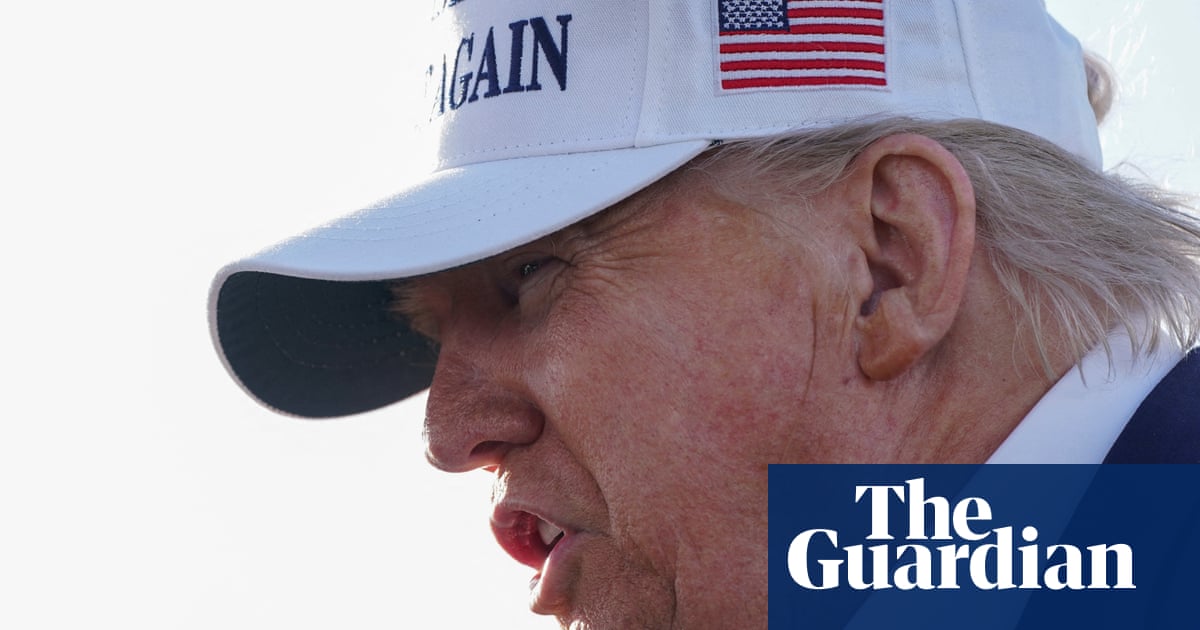Donald Trump will delay his threatened 50% tariffs on all European Union imports into the US, after what he described as a “very nice call” with European Commission president Ursula von der Leyen.
Von der Leyen wrote that she had a “Good call with POTUS” ina social media postannouncing she had secured a tariff delay of more than a month, to 9 July, to give both sides more time to negotiate.
The decision marks a U-turn since Friday, when Trump warned he would impose the 50% tariffs on 1 June becausediscussions with the EU were “going nowhere”. Trump claimed he was “not looking for a deal” that could deter the levies.
Here are the key stories at a glance:
In her announcement of the tariff delay, von der Leyen said that Europe was ready to move ahead with trade talks “swiftly and decisively”, while Germany’s finance minister, Lars Klingbeil, told the Bild newspaper, “We don’t need any further provocations, but serious negotiations.”
If imposed, the tariff hike would escalate simmering tensions between two of the world’s economic heavyweights. Trump had previously paused threatened tariff hikes for three months to allow time for negotiations, giving trading partners until July to agree to new terms.
Read the full story
Trump has lashed out at Vladimir Putin and warned that any attempt to seize all of Ukraine would lead to Russia’s “downfall”, after Moscow launched its biggest air attacks in the three-year war over the weekend.
His comments came after Russia’s weekend attacks on Kyiv and other cities killed at least 12 people, including three children, and injured dozens more. Trump raised the possibility of imposing more sanctions on Russia in response. He also criticised Volodymyr Zelenskyy, who hadearlier condemned US “silence”on the weekend assault.
Read the full story
Federal judges are discussing a proposal that would shift the armed security personnel responsible for their safety away from the Department of Justice and under their own control, as fears mount that theTrump administrationis failing to protect them from a rising tide of hostility.
The idea of creating their own armed security detail emerged at a meeting of about 50 federal judges two months ago, according to aWall Street Journalreport.
Read the full story
Trumphas been warned by fiscal hawks within his own party in the US senate that he must “get serious” about cutting government spending and reducing the national debt, or else they will block the passage of his signature tax-cutting legislation known as the “big, beautiful bill”.
Read the full story
TheTrump administrationhas continued releasing people charged with being in the country illegally to non-governmental shelters along theUS-Mexico border, after telling those same organizations that providing migrants with housing may violate a law used to prosecute smugglers.
Read the full story
AGeorgiapolice officer resigned from his job on Friday after erroneously pulling over a teenager, causing her to spend more than two weeks in a federal immigration jail, and leaving her facing deportation.
The officer, Leslie O’Neal, was employed at the police department in Dalton, a small city more than an hour north of Atlanta. His arrest of college student Ximena Arias-Cristobal not only led to a domino effect that could lead to her deportation – it also engendered anger and criticism, especially given the circumstances of her immigration-related detention.
Read the full story
There is some mystery surroundingDonald Trump’s moves to dismantle many cherished principles of American history and its culture of governance: his globalization denialism; his romance with Russia; his demolition of universities; his contempt for European values and histories; his campaign to humiliate Canada, writes Arjun Appadurai, professor emeritus at New York University.
These are all known examples, but it can be hard to see across them to discern anything like a unified theory of Trumpism, he adds. There are two possibilities here. One is that there is no rhyme or reason to Trump’s actions. He is simply a randomizing generator of chaos; the other is that there is a method. Appadurai subscribes to the second: Trump – and his advisers – know what they are doing.
Read the full essay
It’s been five years since George Floyd was killed by police officer Derek Chauvin. Now hisfamily is fighting for sacred groundwhere he took his last breath.
Kamala Harristook a swipe at Muskat a conference in Australia and raised concerns about AI.
Speaking of Musk, where is he? The tech bossdrifts to the margins of Trump world
